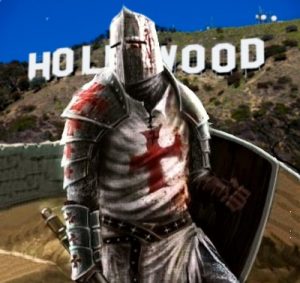
His worldview? Ehh…
The second episode of his brief delve into the story of sci-fi deals with the concept of Monsters. Oooo, scary.
Thanks to the miracle of modern social media, we’ve all got a really good glimpse under the hood of Hollywood. Much to our own disgust.
Broken people want to break you.
Most of the episode of Monsters is given over to the usual gray-goo of “we have met the monsters and they are us” nonsense. You expect that kind of self-hating philosophizing out of people who hate what bargains they made to secure their success.
What you don’t expect is the raft of self-contradictions:
- Hey, modern sci-fi cinema isn’t all old guys, intercut with lots of footage of old films filled with more than just white guys.
- Mary Shelley invented sci-fi with Frankenstein, and John Campbell invented sci-fi (Hugo who?) with his building the Golden Age.
- Women were unfortunately portrayed as monsters sometimes which is bad, and also anyone could be a monster which is bad.
What is equally informative is what they leave out. There is no mention of the old Lewis quote about fairy tales teaching kids that monsters can be beaten.
The episode does have a few highlights, however:
- Guillermo del Toro comes across as a very thoughtful man, with decent insights into topics ranging from dragons to suspension of disbelief.
- Roland Emmerich actually makes a good case for the nineties American Godzilla as a valid heir to the campy Godzilla films of the late sixties.
- The connection between Ripley in the Aliens franchise and how it handed the baton of chief-dragon slayer off to the Resident Evil’s Alice character is a nice touch, even if it is wrapped up in a tight go-grrl power package with a pretty pink “it has always been and always will be the Current Year” ribbon on it.
It’s light fare made for casual fans by casual fans, or perhaps by mercenary grifters, and safely skipped by serious fans of the genre. People who still think the Hugo Awards mean anything will love this episode. The rest of us won’t get anything out of it but a few laughs.
Maybe you don’t understand my antipathy to this style of message fiction and navel gazing. Let me spell it out for you.
Mankind is the greatest thing that ever happened to this universe. People are wonderful, amazing creatures, and each of them carry within themselves a spark of the divine. They are messy and imperfect and flawed, but they are all worthy of love and respect. They are capable of so much good and on balance their presence in the world has made it a better place.
Managed forests are healthier than their wild cousins. Domesticated animals are loved and protected. The great works add a depth and beauty to the world that nature cannot hope to match – I would take a single Cathedral of Notre Dame over a dozen Grand Canyons any day of the week.
That message is nowhere to be found in the hearts of film-makers today, nor is it found in this documentary series.
But you know where you can find that message?
Conan the Cimmerian. John Carter. Holger Carlson. Tarzan.
Unless Hollywoods gets their grubby child-touching hands on those characters, and then they are turned into crude caricatures, empty simulacra that are weaponized against Western Civilization by men who seek only to destroy.
 “Man is the real monster?”
“Man is the real monster?”
Speak for yourself, degenerate.
I’m a paladin of the new world.
I’m not a monster, I’m a monster slayer.
And so are you.
Don’t give money to people that hate you as much as they hate themselves.
Give it to Fenton Woods instead. This guy gets it. His Pirates of the Electromagnetic Waves is amazingly good. It’s a short and sweet tale about a group of young boys who set-up and run a pirate radio station in the kind of almost-America you only dream of calling home.

